
On the afternoon of October 29, continuing the tenth session, the National Assembly discussed in the hall the assessment of the results of the implementation of the 2025 socio- economic development plan; the projected 2026 socio-economic development plan and a number of other important contents.
Need for stronger decentralization to localities
Delegate Nguyen Quoc Han ( Ca Mau Delegation) noted that in the process of implementing the arrangement and streamlining of the administrative apparatus, the decentralization and delegation of power between levels has made much progress. However, some decentralization contents are still unclear; the assignment of tasks and organization of operations are still overlapping, causing difficulties in implementation.

“Decentralization in land management, public investment, public assets, mineral exploitation, infrastructure construction, education, health care, etc. has not yet created flexibility and autonomy for localities. The responsibility of leaders and competent persons in some cases has not been fully promoted,” said the delegate.
From the above situation, delegates recommended that ministries and branches need to comprehensively review the promulgated legal documents, promptly amend, supplement or replace them to suit the mechanisms and policies of the new government; ensure consistency, transparency, no overlap, duplication or omission of tasks. At the same time, it is necessary to decentralize more strongly to localities the contents belonging to the rights and obligations of citizens so that the work can be resolved on the spot, conveniently and quickly.
Regarding human resource training, especially at the commune level, to meet new tasks, delegate Nguyen Quoc Han said that the human factor is the decisive factor for the success of administrative reform.

Delegates said that after implementing the two-level local government model, the team of communal-level officials revealed some shortcomings, not keeping up with the requirements of the tasks, not covering all assigned areas. To ensure the completion of tasks, many communal-level civil servants work from 10 to 12 hours a day.
From there, the delegate recommended: “It is necessary to arrange enough staff for multi-functional departments at the commune level with appropriate numbers and qualifications. Therein, there is a plan to train and foster professional skills and digital technology for civil servants and leaders at the commune level, at the same time, issue mechanisms and policies to increase income commensurate with the assigned tasks. Along with that, synchronous investment, promoting digital transformation, applying information technology in solving work to reduce the workload for cadres and civil servants”.
Debate in the hall, delegate Tran Quang Minh (Quang Tri delegation) said that after the organizational arrangement, the commune level lacked specialized staff, affecting the service activities for the people as some delegates mentioned, this is not a common situation but only local.
According to the delegate, in reality, before implementing the two-level local government model, the team of professional staff at both district and commune levels was already lacking, so when merging commune levels, the shortage is understandable...
From that reality, delegate Tran Quang Minh suggested that the Central Government should direct a general review to make appropriate adjustments; increase specialized staff for the commune level, ensure reasonable allocation, especially for the People's Committees at the commune level.
Only when officials have enough to live can they feel secure in serving.
Speaking at the meeting, delegate Ha Sy Dong (Quang Tri delegation) emphasized that only when officials have enough to live can they feel secure in serving.
"Not only should salaries be increased from the beginning of next year, but in my opinion, at this session, the Government should have a report on the current situation of commune officials, how there is a surplus or shortage, what are the shortcomings in the policies and mechanisms, and what decisions the National Assembly needs to make to resolve them immediately," said delegate Ha Sy Dong.

Participating in explaining and clarifying the opinions of the delegates, Deputy Prime Minister Pham Thi Thanh Tra said that after 4 months of implementing the two-level local government model, many important results have been achieved. The apparatus has initially operated stably and smoothly, and has been recognized by the people. Many localities have creative and flexible ways of handling arising problems in a timely manner.

However, this is a new and unprecedented issue, so there are still difficulties in awareness, management thinking and working methods. Presenting some key solutions in the coming time, the Deputy Prime Minister said that the most important task is to focus on perfecting the institutional and policy system.
The Deputy Prime Minister also acknowledged, as the delegate stated, that the number of communal-level cadres in many places is both excessive and insufficient, and some are not professionally qualified. However, according to the summary report from 34 provinces, the number of communal-level cadres is not necessarily lacking; the average rate of communal-level civil servants is 41.3%, of which 5.38% are not professionally qualified.
According to the Deputy Prime Minister, this is a new issue that cannot be mastered immediately. Therefore, the Government is directing the Ministry of Home Affairs to complete the job position framework, clearly identify the needs of each locality, and serve as a legal basis for the allocation of staff for the 2026-2030 period.
“In the immediate future, localities need to proactively review, restructure, and adjust to ensure appropriate staff, especially for positions such as finance, land administration, environment, information technology, construction, justice, etc. The Government assigned the Ministry of Home Affairs to develop a project to train commune-level officials by 2030,” Deputy Prime Minister Pham Thi Thanh Tra added.
The Deputy Prime Minister said that if localities are passive, the operation of the two-level government will be very difficult. The Government has issued specific instructions on handling public assets and reforming administrative procedures, and requested localities to continue to cut and simplify procedures to meet reform requirements.
Regarding salary policy reform, the Deputy Prime Minister informed that the Government is developing a comprehensive project, chaired by the Central Policy and Strategy Committee, to re-evaluate Resolution 27, and is expected to report to the Central Committee in the first quarter of 2026. From there, the Government will develop a salary policy reform plan with a roadmap and appropriate steps, within the overall reform of the administrative system, the scale of the economy, and the payment capacity of the state budget.
Source: https://hanoimoi.vn/nhieu-cong-chuc-cap-xa-lam-viec-tu-10-den-12-tieng-ngay-de-hoan-thanh-nhiem-vu-721422.html


![[Photo] Prime Minister Pham Minh Chinh chaired a meeting to evaluate the operation of the two-level local government model.](https://vphoto.vietnam.vn/thumb/1200x675/vietnam/resource/IMAGE/2025/10/29/1761751710674_dsc-7999-jpg.webp)

![[Photo] Prime Minister Pham Minh Chinh chaired a meeting to discuss solutions to overcome the consequences of floods in the central provinces.](https://vphoto.vietnam.vn/thumb/1200x675/vietnam/resource/IMAGE/2025/10/29/1761716305524_dsc-7735-jpg.webp)
![[Photo] Hue: Inside the kitchen that donates thousands of meals a day to people in flooded areas](https://vphoto.vietnam.vn/thumb/1200x675/vietnam/resource/IMAGE/2025/10/29/1761738508516_bepcomhue-jpg.webp)
![[Photo] Human love in the flood in Hue](https://vphoto.vietnam.vn/thumb/1200x675/vietnam/resource/IMAGE/2025/10/29/1761740905727_4125427122470875256-2-jpg.webp)

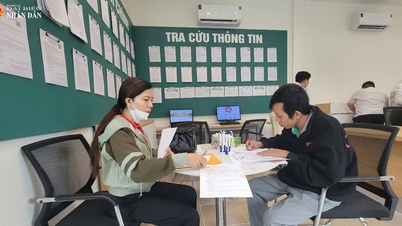

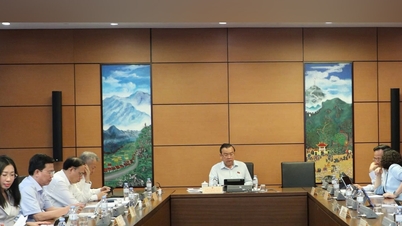
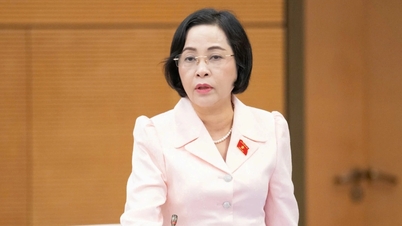



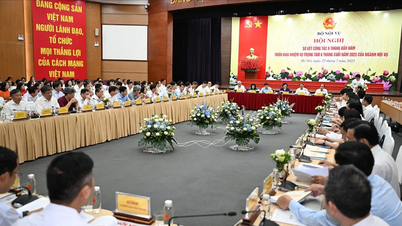

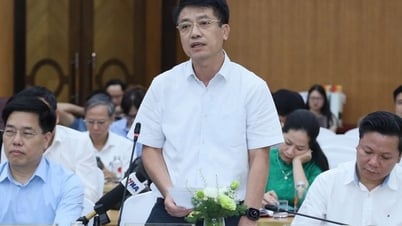








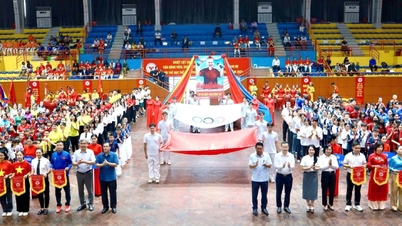

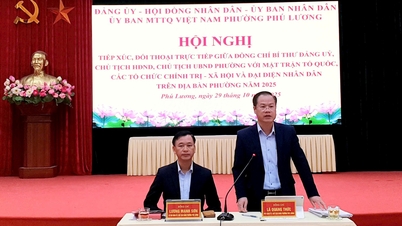






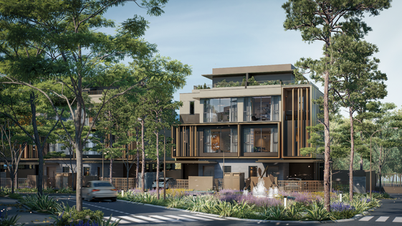

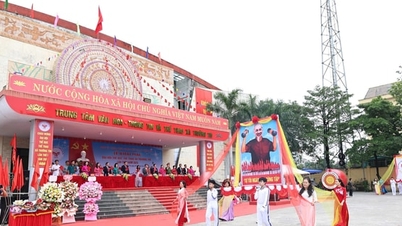
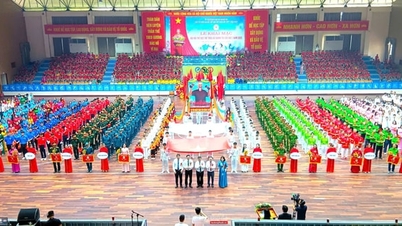


































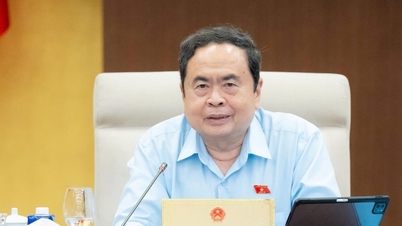
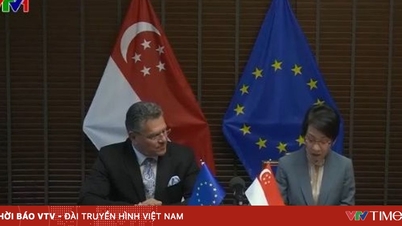
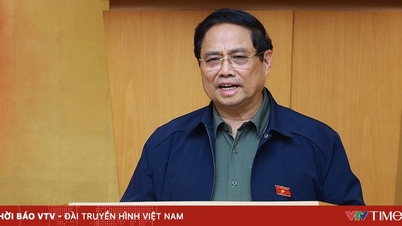
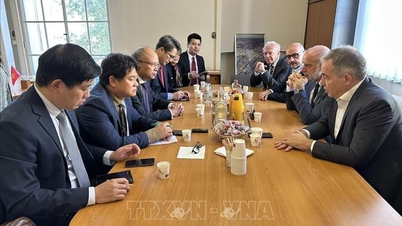

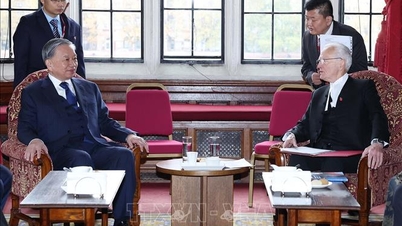




![[Live] Concert Ha Long 2025: "Heritage Spirit - Brightening the Future"](https://vphoto.vietnam.vn/thumb/402x226/vietnam/resource/IMAGE/2025/10/29/1761743605124_g-anh-sang-am-thanh-hoanh-trang-cua-chuong-trinh-mang-den-trai-nghiem-dang-nho-cho-du-khach-22450328-17617424836781829598445-93-0-733-1024-crop-1761742492749383512980.jpeg)



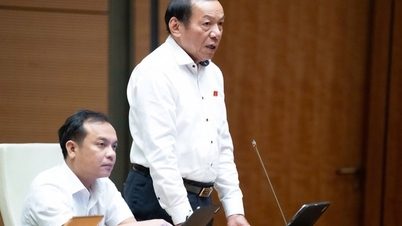




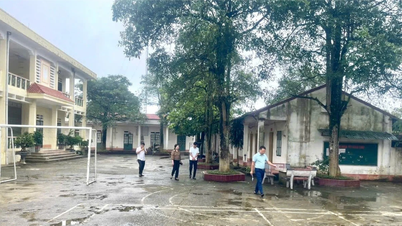













Comment (0)